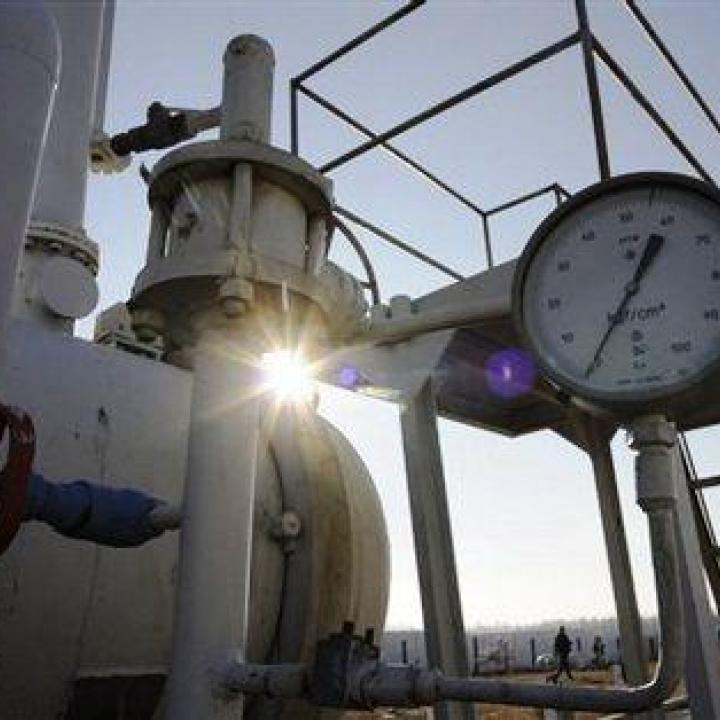

Cairo's otherwise disappointing decision to freeze Israel's gas supplies gives Washington an opportunity to separate its Egypt and Eastern Mediterranean energy policies.
Yesterday's predictable but still surprising announcement that Egypt's state-run gas company has cancelled its natural gas supply contract with Israel is of immediate concern to Washington, not only because it may affect the peace treaty between the two countries, but also because it could increase the likelihood of vexatious disputes in the development of Eastern Mediterranean gas reserves.
Egypt's supply of oil and, later, natural gas to Israel is considered one of the foundations of the 1979 Camp David Accords. Although a commercial contract, the gas deal is covered by a 2005 memorandum of understanding between the two governments, which notes that the supply arrangement -- slated for an initial period of fifteen years -- "will contribute to enhancing peace and stability in the Middle East." Under the memorandum's terms, Cairo "guarantees the continuous and uninterrupted supply" of gas. But the deal has long been contentious in Egypt among liberals and Islamists alike -- one of the charges that deposed president Hosni Mubarak is facing alleges corruption in the contract. The deal's cancellation, reportedly on the grounds of Israel not paying for supplies, has been welcomed across the Egyptian political spectrum.
The contract's fate is perhaps destined to be worked out by arbitration, legal or political. Because of low volumes and frequent pipeline sabotage blamed on al-Qaeda and lawless Bedouin tribesmen in Sinai, Israel's immediate embarrassment about the cancellation is limited. When working properly, the contract supplied around four billion cubic meters (bcm) of gas per year, but since 2009, Israel has discovered new reserves off its coast totaling more than 750 bcm -- that is, the equivalent of 200 years' worth of what was coming from Egypt.
The challenge for Israel is that the first of these reserves, in the Tamar field, will not come onstream for another twelve months. Until then, the power stations that formerly used supplies from Egypt will have to burn expensive and relatively dirty fuel oil, which several of them have already had to do for months in light of the low-volume and sabotage problems. Electricity shortages are likely during the peak summer season despite emergency attempts to bring onstream a small offshore field that was previously considered commercially unviable. Additionally, Israel is instituting plans for a specialized offshore regasification vessel that will allow temporary imports of liquefied natural gas until the Tamar field is fully operational.
In the meantime, the Egyptian decision, though downplayed by Prime Minister Binyamin Netanyahu, will likely stiffen Israel's resolve to free itself from restrictive bilateral relations that might hamper the exploitation and export of gas from its other major recent find, the appropriately named Leviathan field. This is a further inconvenience for U.S. policy because Eastern Mediterranean gas developments in the past two years have raised Washington's expectations that regional tensions might be more amenable to resolution. So far, however, the gas discoveries have not been a game-changer. Although Israeli collaboration with Cyprus is advancing, it has exacerbated Turkey-Cyprus friction. And reported ideas for resolving Israel and Lebanon's offshore boundary dispute still seem fanciful. Jordan, itself hit hard by unreliable Egyptian supplies, is ignoring the logical option of buying gas from Israel and instead is talking to Qatar.
Washington is struggling to retain influence in Egypt's internal political struggle while also maintaining the structure of the Egypt-Israel peace treaty, which has long been a linchpin of U.S. policy in the region. Yet, while Washington's Egypt policy is in intensive care, U.S. policy on the development of Eastern Mediterranean gas reserves represents a different set of challenges, and the two issues should not be mixed. Egypt's otherwise disappointing decision provides an opportunity to separate them.
Simon Henderson is the Baker fellow and director of the Gulf and Energy Policy Program at The Washington Institute. David Schenker is the Institute's Aufzien fellow and director of the Program on Arab Politics.




